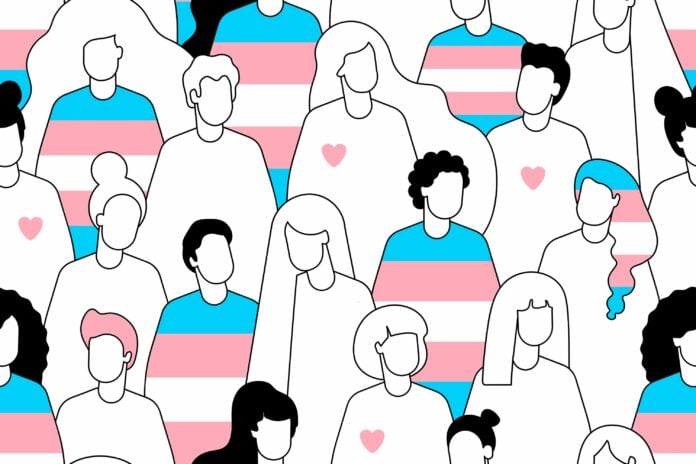
Major changes were recently made to Title IX, but what does that mean for Indiana students?
In short, not much. The longer version, however, is a bit more complicated, especially for transgender and gender diverse students. With school right around the corner, it is imperative that parents, students and teachers know their rights inside the classroom.
“I think it is extremely alarming because IYG (Indiana Youth Group), at the core of our mission, is creating safer spaces for community and specifically for LGBTQ+ youth,” said Terrelle Parker, chief operating officer of Indiana Youth Group. “It’s important for our young people to be protected in every space because every single day, we hear the stories of what young people go through in schools when they’re not protected.”
Title IX, which is a federal civil rights law passed as part of the Education Amendments of 1972, prohibits sex-based discrimination in educational institutions that receive federal funding. Title IX protects all students, faculty and staff on campus regardless of sex, gender identity or expression.
According to the American Council of Education, the changes to Title IX introduce “significant shifts in how institutions address sexual harassment and assault allegations while expanding protections for LGBTQ+ and pregnant students.”
These regulations also redefine sex to include gender identity and are set to take effect Aug. 1 — well, everywhere except for Kentucky, Ohio, Virginia, Tennessee and Indiana.
On April 30, Attorneys general in Kentucky, Ohio, Tennessee, Virginia, West Virginia, and Indiana filed a joint lawsuit in the U.S. District Court for the Eastern District of Kentucky where they argued the new Title IX regulations will “bar schools’ long-lawful practices to protect student privacy, perversely hamper fair competition in women’s sports, and punish States for following their laws.”
READ MORE: Justice40: A brief overview and discussion of the future
The judge in Kentucky found these new regulations unconstitutional and issued an injunction to prevent them from going into effect in the states named in the lawsuit, according to Nadine McSpadden, director of advocacy and general counsel for Indiana Youth Group.
“The new Title IX regulations are not going to be going into effect in Indiana because of this Kentucky decision,” McSpadden said. “It is being appealed.”
But this is where it gets complicated, McSpadden added, because Indiana is part of the 7th Circuit Federal Appellate Court where there is precedence for similar Title IX Cases.
In 2017, the 7th Circuit Court of Appeals issued a decision in Whitaker v. Kenosha Unified School District that said Title IX protects transgender high school students. This decision did not just apply to transgender students being able to use bathrooms that align with their gender identity, but that they were also protected under the Equal Protection Clause, McSpadden said.
This ruling is still in effect.
A few years later, in 2020, the U.S. Supreme Court issued a decision in Bostock v. Clayton County. They ruled that under Title VII, which protects employees and job applicants, that prejudice based on transgender status is a form of sex discrimination.
“That’s important because that’s why the 7th Circuit said that Title IX protects transgender students,” McSpadden said. “So even before these new regulations were passed that defined sex to include gender identity, the 7th Circuit said implicitly, gender identity falls under the definition of sex.”
In 2023, the 7th Circuit issued an opinion called AC v. Metropolitan School Districts of Martinsville. This was another high school bathroom case where it was confirmed under Title IX and the Equal Protection Clause that transgender students are protected and should be permitted to use the bathroom that aligns with their gender identity, McSpadden said.
“Part of the problem is that we have folks who are leading our state, like our attorney general and our Department of Education, who are muddying the waters and instructing schools that they don’t have to do anything but not telling them that, ’By the way, these 7th Circuit Cases are still good law, and you still need to protect the transgender students who are part of your population,’” McSpadden said.
IYG conducts a school climate survey that is distributed to their statewide Gay Straight Alliance networks, which currently feature more than 50 Indiana high schools, Parker said.
“One of the most requested information by students and by staff and administration is ‘How do we navigate the legal challenges and the legal decisions that are coming down from the courts?’” Parker said. “So, the students are feeling it; the faculty, staff and the administration that support these students are feeling it.”
For the last 20 years, GLSEN — Gay, Lesbian, Straight Education Network — has put out a massive biannual survey to “illustrate the experiences of transgender and nonbinary students in K-12 schools,” according to the website.
The most recent survey showed 76% of all LGBTQ+ students experienced harassment or assault, 97% had heard homophobic and transphobic remarks and 68% felt unsafe in their schools.
“That means that more than 2 out of every 3 kids who are LGBTQ in school are looking over their shoulder right now,” said Emma Vosicky, executive director of GenderNexus.
GenderNexus, which is an Indiana-based social services agency, works closely with schools and school counselors, agencies and businesses to provide training and education around gender diversity. This includes case management, counseling, support groups and resources such as their binder program and medical referral letters.
“Hope is hard to come by here,” Vosicky said, but she added that she hopes that politicians would be open to seeing these kids as just kids.
“We both want the students to be safe, and we both want them to be academically successful,” she said. “There’s no way you’re going to be successful in school if you don’t feel safe, so we’re open to having those one-on-one conversations with individual schools.”
This story has been updated.
Contact Arts & Culture Reporter Chloe McGowan at 317-762-7848. Follow her on X @chloe_mcgowanxx.
Chloe McGowan is the Arts & Culture Reporter for the Indianapolis Recorder Newspaper. Originally from Columbus, OH, Chloe graduated with a degree in journalism from The Ohio State University. She is a former IndyStar Pulliam Fellow, and her previous work includes freelancing for Indy Maven, Assistant Arts & Life Editor for The Lantern, and editorial assistant at CityScene Media Group. Chloe enjoys covering all things arts and culture — from local music, visual art, dance, theater and film, as well as minority-owned businesses. In her free time, Chloe enjoys reading, cooking and keeping her plants alive.




